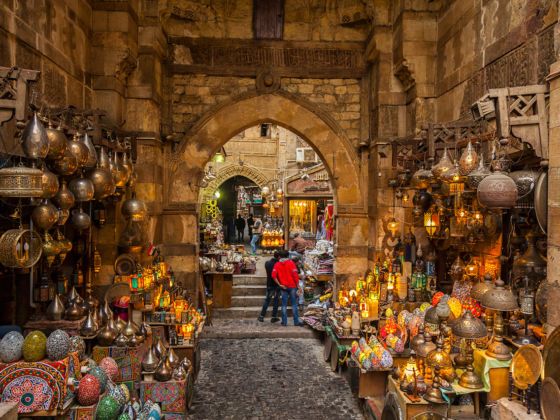“Egypt is wonderful,” I said. This was a lie.
Ten minutes prior, I had taken off my shoes and walked alone into a mosque.
The guidebook described the building as architecturally interesting, but it looked rather mundane. As was usually the case with mosques, the space was mostly empty. Rugs covered the floor. A few wires dangled across the ceiling, intersecting like depictions of two-lane highways on a map.
